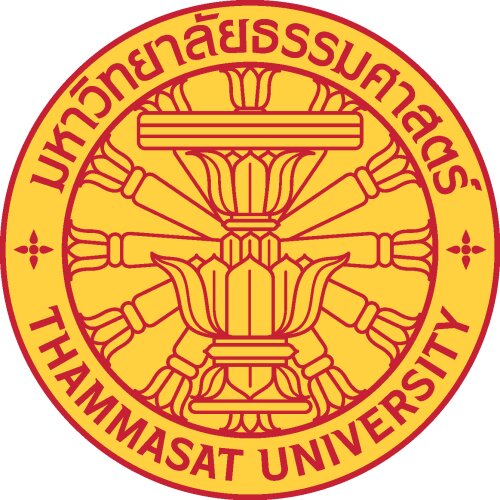Best Native People Lawyers in Bangkok
Share your needs with us, get contacted by law firms.
Free. Takes 2 min.
List of the best lawyers in Bangkok, Thailand
Legal guides written by Smart Legal Solutions:
- Main Legal Measures to Protect Foreign Investment in Thailand
- The importance of the geographical indications for the Thai economy
About Native People Law in Bangkok, Thailand
Bangkok, Thailand, is a vibrant city that is home to a diverse population, which includes various indigenous groups. However, "native people" typically refers to the indigenous ethnic groups from rural parts of Thailand or nearby regions rather than those residing in urban Bangkok. These communities have their own distinct cultural practices, languages, and traditional ways of life. Legal issues concerning native people in Bangkok often involve matters of cultural preservation, land rights, and recognition of indigenous status, which can sometimes intersect with broader urban legal frameworks.
Why You May Need a Lawyer
Individuals from native communities may find themselves in need of legal assistance in a variety of situations. Common scenarios include disputes over land ownership, navigating regulations related to hunting and traditional practices, and seeking recognition of indigenous rights. Additionally, lawyers can be crucial in cases where native people face discrimination or seek to protect their cultural heritage and intellectual property.
Local Laws Overview
In Bangkok, as in the rest of Thailand, there are specific legal frameworks governing the rights and recognition of native communities. Key aspects include the constitutional recognition of cultural diversity, laws regarding land ownership and use, and statutes concerning traditional and cultural heritage protection. It is important for native people to be aware of both national laws and any specific local ordinances that may affect their rights and privileges.
Frequently Asked Questions
Who are considered native people in Thailand?
Native people in Thailand typically refer to the hill tribes and indigenous groups found in rural areas of the country, but not commonly in Bangkok. They include ethnic minorities like the Karen, Hmong, and Lahu.
Does Bangkok have a large native population?
Bangkok does not have a significant population of native people, as it is a major urban center. However, members of indigenous groups may reside in the city for work or education.
Are there specific laws protecting native people in Thailand?
Yes, Thailand's constitution acknowledges the rights of indigenous peoples, and there are laws that aim to protect their cultural heritage and land rights.
How do land rights issues affect native people?
Land rights are a crucial issue for native people, especially in areas surrounding cultural heritage sites. Disputes can arise due to unclear land deeds or encroachment by non-native entities.
What is cultural heritage protection?
Cultural heritage protection involves legal measures to preserve traditional practices, languages, arts, and knowledge of indigenous communities from exploitation or unauthorized use.
How can native people protect their traditional knowledge?
Native people can seek legal recognition of their traditional knowledge as intellectual property to safeguard it against misuse and to provide a potential source of communal income.
Are there educational rights for native people?
Yes, the Thai government supports educational initiatives for indigenous people to promote literacy and higher education while respecting their cultural identities.
How can discrimination against native people be addressed legally?
Discrimination can be addressed through legal channels by filing complaints with relevant authorities or seeking redress through human rights organizations.
Can native people practice traditional activities legally in Bangkok?
While traditional practices are generally respected, they must comply with urban regulations in Bangkok, which may require specific permits or adherence to city ordinances.
What steps should one take if their native rights are violated?
Document the violation, seek assistance from legal professionals or organizations specializing in indigenous rights, and consider mediation or legal action for resolution.
Additional Resources
For individuals seeking legal assistance concerning native people, the following resources may be valuable:
- The Tribal Research Institute in Chiang Mai for information on hill tribes and indigenous rights.
- Legal Aid Centers specializing in human rights and indigenous laws.
- Governmental body: Office of the National Commission on Indigenous Peoples (NCIP) for policy and support.
- Non-governmental organizations focusing on cultural preservation and advocacy for native communities.
Next Steps
If you require legal assistance concerning native people in Bangkok, consider the following steps:
- Identify the legal issue and gather all relevant documents and information.
- Reach out to a law firm or legal aid service with expertise in indigenous rights.
- Consult with a lawyer to assess the situation and determine the best course of action.
- Engage with community organizations that support native people's rights for additional support and advocacy.
- Remain informed about your legal rights and any changes in legislation that may affect native people in Thailand.
Lawzana helps you find the best lawyers and law firms in Bangkok through a curated and pre-screened list of qualified legal professionals. Our platform offers rankings and detailed profiles of attorneys and law firms, allowing you to compare based on practice areas, including Native People, experience, and client feedback.
Each profile includes a description of the firm's areas of practice, client reviews, team members and partners, year of establishment, spoken languages, office locations, contact information, social media presence, and any published articles or resources. Most firms on our platform speak English and are experienced in both local and international legal matters.
Get a quote from top-rated law firms in Bangkok, Thailand — quickly, securely, and without unnecessary hassle.
Disclaimer:
The information provided on this page is for general informational purposes only and does not constitute legal advice. While we strive to ensure the accuracy and relevance of the content, legal information may change over time, and interpretations of the law can vary. You should always consult with a qualified legal professional for advice specific to your situation.
We disclaim all liability for actions taken or not taken based on the content of this page. If you believe any information is incorrect or outdated, please contact us, and we will review and update it where appropriate.

















